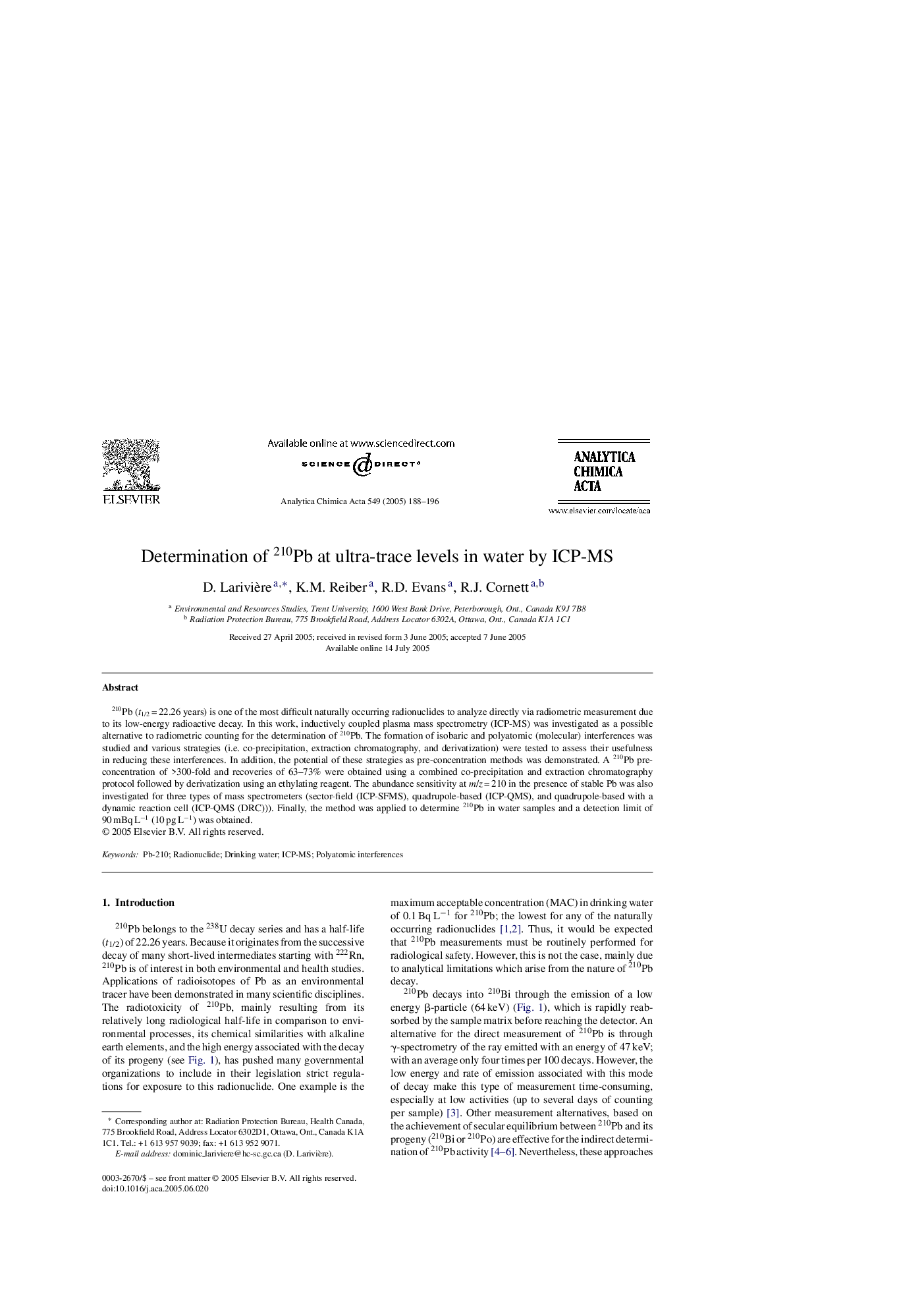| Article ID | Journal | Published Year | Pages | File Type |
|---|---|---|---|---|
| 9743476 | Analytica Chimica Acta | 2005 | 9 Pages |
Abstract
210Pb (t1/2 = 22.26 years) is one of the most difficult naturally occurring radionuclides to analyze directly via radiometric measurement due to its low-energy radioactive decay. In this work, inductively coupled plasma mass spectrometry (ICP-MS) was investigated as a possible alternative to radiometric counting for the determination of 210Pb. The formation of isobaric and polyatomic (molecular) interferences was studied and various strategies (i.e. co-precipitation, extraction chromatography, and derivatization) were tested to assess their usefulness in reducing these interferences. In addition, the potential of these strategies as pre-concentration methods was demonstrated. A 210Pb pre-concentration of >300-fold and recoveries of 63-73% were obtained using a combined co-precipitation and extraction chromatography protocol followed by derivatization using an ethylating reagent. The abundance sensitivity at m/z = 210 in the presence of stable Pb was also investigated for three types of mass spectrometers (sector-field (ICP-SFMS), quadrupole-based (ICP-QMS), and quadrupole-based with a dynamic reaction cell (ICP-QMS (DRC))). Finally, the method was applied to determine 210Pb in water samples and a detection limit of 90 mBq Lâ1 (10 pg Lâ1) was obtained.
Related Topics
Physical Sciences and Engineering
Chemistry
Analytical Chemistry
Authors
D. Larivière, K.M. Reiber, R.D. Evans, R.J. Cornett,
